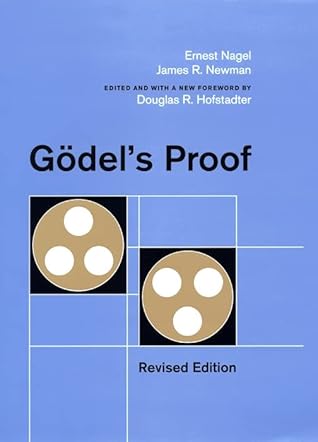More on this book
Community
Kindle Notes & Highlights
We now understand that the human mind is fundamentally not a logic engine but an analogy engine, a learning engine, a guessing engine, an esthetics-driven engine, a self-correcting engine. And having profoundly understood this lesson, we are perfectly able to make “fixed sets of directives” that have some of these qualities.
Moreover, if in some way the truth of the axioms can be established—and, indeed, for some two thousand years most students believed without question that they are true of space—both the truth and the mutual consistency of all the theorems are automatically guaranteed.
If axioms are true (of space or space-time), does it mean that all theorems derived from them using "principles of logic" are also true. Wouldn't this require that "principles of logic" also have to be true and hence axiomatic.
each sector of mathematical thought can be supplied with a set of axioms sufficient for developing systematically the endless totality of true propositions about the given area of inquiry.
Abid Uzair liked this
proper business of pure mathematicians is to derive theorems from postulated assumptions, and that it is not their concern whether the axioms assumed are actually true.
Abid Uzair liked this
We repeat that the sole question confronting the pure mathematician (as distinct from the scientist who employs mathematics in investigating a special subject matter) is not whether the postulates assumed or the conclusions deduced from them are true, but whether the alleged conclusions are in fact the necessary logical consequences of the initial assumptions.
Abid Uzair liked this
pure mathematics is the subject in which we do not know what we are talking about, or whether what we are saying is true.
Intuition, for one thing, is an elastic faculty: our children will probably have no difficulty in accepting as intuitively obvious the paradoxes of relativity, just as we do not boggle at ideas that were regarded as wholly unintuitive a couple of generations ago. Moreover, as we all know, intuition is not a safe guide: it cannot properly be used as a criterion of either truth or fruitfulness in scientific explorations.
internally consistent, so that no mutually contradictory theorems can be deduced from the postulates.
The basis for this confidence in the consistency of Euclidean geometry is the sound principle that logically incompatible statements cannot be simultaneously true;
no. 3.)
Before leaving the sentential calculus, we must mention a final point. Since every theorem of this calculus is a tautology, a truth of logic, it is natural to ask whether, conversely, every logical truth expressible in the vocabulary of the calculus (i.e., every tautology) is also a theorem (i.e., derivable from the axioms). The answer is yes, though the proof is too long to be stated here. The point we are concerned with making, however, does not depend on acquaintance with the proof. The point is that, in the light of this conclusion, the axioms are sufficient for generating all tautologous
...more
it confirm the power of PM as an axiomatic system for number theory, but it also pins down the conventional interpretations for each and every symbol.
‘The sequence of formulas with Gödel number x is a proof (i.e., a demonstration) inside PM of the formula with Gödel number
formality. Note carefully that whereas ‘dem (2,
If we prefix this formula with the tilde, thus constructing its formal negation, we get: ‘~(∃x) Dem (x, z)’. This formula constitutes a formal paraphrase, within PM, of the meta-mathematical statement: ‘The formula with Gödel number z is not demonstrable’—or, to put it another way, ‘No proof can be adduced for the formula with Gödel number z’.
(G) ~(∃x) Dem (x, Sub (n, 17, n))


